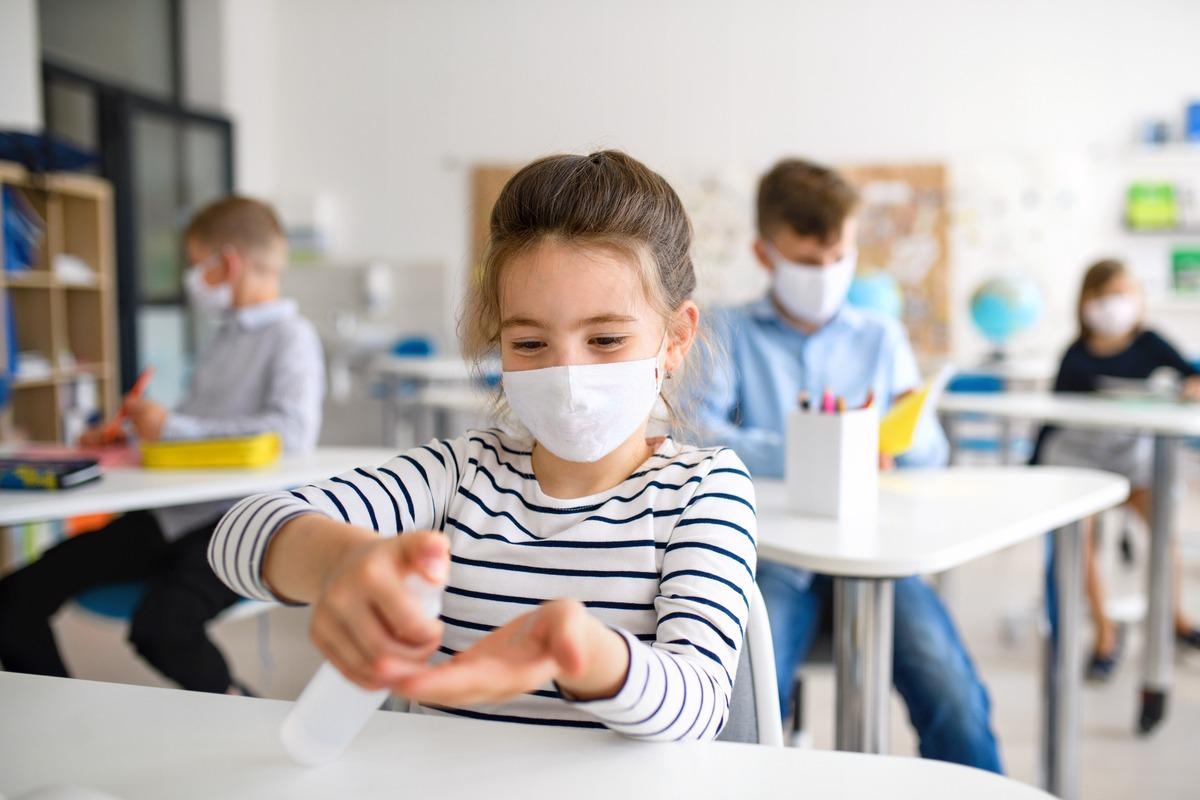Researchers from the United Kingdom looked for evidence of severe acute respiratory syndrome coronavirus 2 (SARS-CoV-2)-specific adaptive antibody and cellular immune responses in children.
Unlike the varying adult immune response against the SARS-CoV-2, children presented strong and stable immune responses - antibody and T-cell responses against the virus, as well as notable cross-reactivity with other human coronaviruses.
 Study: Cross-reactive adaptive immunity against coronaviruses in young children. Image Credit: Halfpoint/Shutterstock
Study: Cross-reactive adaptive immunity against coronaviruses in young children. Image Credit: Halfpoint/Shutterstock
The recent study in the journal Nature Immunology provides a comparison of the profile of immune response after SARS-CoV-2 infection in children and in adults.
Introduction
Coronavirus disease 2019 (COVID-19) is caused by the SARS-CoV-2. It is well known that in the SARS-CoV-2 infection and in severe COVID-19, age is a crucial risk factor. Age is the ‘the most notable determinant of the outcome,’ - outcomes such as hospitalization and extended stay, need for intensive care, and possibly death, in older individuals.
Contrastingly, children infected with SARS-CoV-2 were generally asymptomatic or presented mild symptoms. While the SARS-CoV-2 viral load within the upper airways is observed to be similar in children and adults, the response of the innate immune system is highly effective against this virus among children.
How the adaptive immune system responds to SARS-CoV-2 infection and functions at different ages is yet unclear.
Study findings
The study cohort included 91 children of primary school age with a median age of 7 years, and 151 adults for comparison. The adults were teachers in the same schools as the children in this study.
The researchers found that both the children (47%) and the adults (59%) were previously infected with SARS-CoV-2. While all of them presented only mild symptoms (and no hospitalizations), the researchers measured "the strength, specificity, quality, and longevity of the immune responses" of the participants over the next 12 months.
The researchers found that while the children developed virus-specific immune responses strongly against the SARS-CoV-2 spike protein, their antibody levels against the spike protein were higher than in adults. The spike protein is present on the viral envelope and binds to the host receptor enabling viral entry into the host cell.
Further, the researchers also observed that the T cell responses were twofold higher in children.
Interestingly, they also found that some antibody and T cell responses in children cross-reacted with the spike protein of other human coronaviruses - against all four Alpha and Beta hCoV subtypes. Thus, SARS-CoV-2 infection boosts hCoV binding antibodies in children and develops robust cellular responses.
Further, the researchers found that the cross-reacting antibodies in children were specific for the conserved S2 subunit of the spike protein. The S2 subunit mediates fusion of the viral and host-cell membranes, initiating the next stage of infection.
Independent of the age of the child, their antibodies were fully functional to neutralize SARS-CoV-2. Notably, the immune responses were stable for 6–12 months after infection in children, which declined in adults.
Significantly, the researchers also found even children who were never infected with SARS-CoV-2, had spike-specific immune responses, possibly developing immunity from recent infections with other human coronaviruses. The researchers suggested that this may help to protect children against severe COVID-19.
A major limitation of this work is the lack of samples from participants before and after the SARS-CoV-2 infection.
Significance
Because age affects the adaptive immune response to SARS-CoV-2, understanding how these protective immune responses are mediated is important and useful. With the ongoing vaccination programs for adults and also delivered for children in some countries, it is imperative to wholly understand the SARS-CoV-2-specific protective or pathological immune response in children. Particularly, the immune profile after a natural SARS-CoV-2 infection would help strategize the vaccination regimens for children.
This study also shed light on how the immune system is cross-reactive early in life and thus evolves as it broadens the response against diverse pathogens. This work suggests that the immunogenicity of natural infection is robust in children.
The researchers discussed the possibility of the enhanced ‘cross-reactivity’ of adaptive immune responses among young children to ‘spill over’ into autoimmunity (sometimes rare inflammatory disorder is seen in some children after acute SARS-CoV-2 infection), further research into this is warranted. With the possibility of a profound vaccine-induced immunity in children, a deeper understanding of the immunity generated will help plan and titer the vaccine dose.
Conclusion
The study shows that both antibody and cellular arms of the adaptive immune response against SARS-CoV-2 are displayed strong, sustained, and cross-reactive against other coronaviruses, in young children than the immune responses in adults. Robust antibody responses boosted binding and cross-reactive neutralization with hCoV and variants of concern (VOCs), robust cellular immunity, and lasting for 12 months explain the mild to no symptoms in young children when exposed to SARS-CoV-2 or its variants.
This study is suggestive of superior SARS-CoV-2 clearance and longer immune memory in children of primary school age.